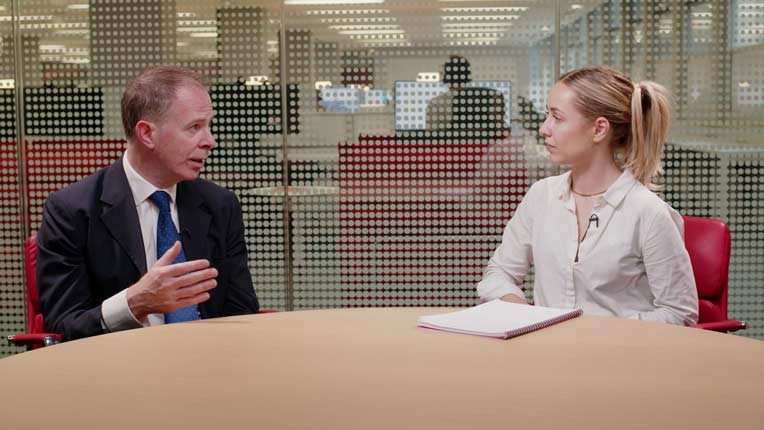Emma Wall: Hello and welcome to the Morningstar series, Ask the Expert. I'm Emma Wall and here with me today is Tom Stevenson from Fidelity Personal Investing to talk about new ISAs.
Hello Tom.
Tom Stevenson: Hello Emma.
Wall: So NISAs are coming in July 1, what's going to change, what makes them new?
Stevenson: The nicer ISA, yeah, they certainly are bigger and better, that's what makes them different. I mean you can – the allowance has gone up from £11,880 a year to £15,000 a year. So, that's quite a bit enhancement of what you can save, and that matters quite a lot, because compounded over time, that extra amount actually brings forward quite significantly the date at which you can make a serious amount of money. We calculate that you could become a millionaire by putting in your full allowance every year within 25 years now, whereas before it would have taken you 29 years. So, the extra allowance is the first thing.
I think the second important thing is that they are much more flexible than the old ISAs in two ways. The first flexibility is that you can move both ways, between stocks and shares and cash and back again. Previously, you could move from cash into stocks and shares, but you couldn't move the other way. So that was quite a restriction.
The other flexibility is that there's now a much wider range of investments that you can put in a NISA. So, for example AIM shares and there's a consultation about allowing peer-to-peer lending in an ISA as well.
Wall: On the face of it, all those things sound very positive, and I don't think anyone's going to dispute, the first point. When ISAs were introduced as PEPs it was only about £2,000 you were allowed to have tax free.
Stevenson: Yeah. That's right. £2,400, yes.
Wall: So this is a significant increase. On the second point, being able to move from cash to investments, investments back to cash, that has alarm bells for me, because at the moment obviously, developed markets, stock markets are rallying. People are confident, but what happens when we inevitably face another loss, when the markets start to go down. Will people get scared and move their money into cash where presumably we're still not going to have that much return if interest rates are going to stay low.
Stevenson: I think it’s a really important point, because one of the – it sounds like a drawback that you're locked into stocks and shares. It's a bit like it sounds like a drawback that you're locked into a pension until you're 55, but actually for many people, it's actually quite a benefit that you're tied. Because for a long-term investor, I feel really strongly that you should be in stocks and shares and not in cash, because as you rightly point out, the returns on cash are very low. They're likely to remain low, but if people have the option to go into cash, as soon as they're nervous about the market, then they are likely to bail out and unfortunately history shows that people tend to bail out of markets at just the wrong time.
Wall: So perhaps, it's a case of looking at this new ISA in a more similar way to your SIPP; taking a long-term view.
Stevenson: I think you absolutely have to take a long-term view. I think it's a fantastically flexible and generous allowance, to be able to put £15,000 aside – remember for a couple that means you can put £30,000 aside every year. Which means for most families in the U.K. they never even need to think about tax, capital gains tax or income tax on their savings and investments. So, it's a fantastic thing. Everyone should use it to the maximum extent that they can afford and it is very much a long-term investment.
Wall: On your third point then about broadening out the sort of things that one can hold in this new ISA. Again, people need to be aware that AIM shares are more risky and its consultation on peer-to-peer again that's not as regulated a sector as normal equities, bonds and funds.
Stevenson: I agree and for most people, they won't want to go down this route. They won't want to invest in individual shares. They'll want to invest in a fund, to leave it up to the professionals and indeed they will probably want to invest in a multi-asset fund where a professional investor will actually make the decisions about the balance between equities and bonds and property and cash. Most people are not sufficiently interested or have the skill to do that themselves but of course it's nice that you have the option to do it if you're interested and want to do it.
Wall: And talking about options, far too many of us leave it till the very last moment before we use our ISA allowance. A substantial amount of people use the cash park facility on a platform, don't they, where they put cash aside they allocate that cash into their ISA on April 4 and then come back to it. Tax used to be charged on that, and that's also changed, hasn't it?
Stevenson: Yes, I mean, that's the final significant change that we haven't mentioned, which is the fact that cash sitting within an ISA, whether it's a cash ISA or a stocks and shares ISA no longer attracts income tax. So, you can have the cash there and it can sit there for as long as you like and you won't be paying any income tax on it now.
Wall: Tom, thank you very much.
Stevenson: Thank you.
Wall: This is Emma Wall for Morningstar. Thank you for watching.




























